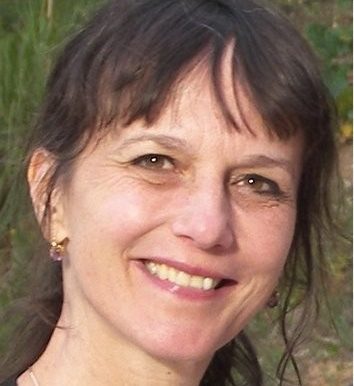CANCELLED
Micro-phenomenology
April 5-9, 2020
Micro-phenomenology is a new scientific discipline enabling us to discover ordinary inaccessible dimensions of our lived experience and describe them accurately and reliably. The development of this "psychological microscope" opens vast fields of investigation in the educational, technological, clinical and therapeutic, as well as artistic and contemplative domains.
Micro-phenomenological interview training
What is micro-phenomenology?
Micro-phenomenology is a new scientific discipline that enables us to explore our lived experience very finely: what's happening when an idea comes to us? When suddenly a childhood memory comes back? When we feel sad, or on the contrary elated? When we listen to a piece of music, or taste a good wine? When we read a novel, or write a letter? These phenomena, which constitute the very texture of our existence, are difficult to describe, and have thus far been excluded from scientific investigation.
But recent research shows that we can learn to describe our experience very accurately and reliably, and discover its ordinarily inaccessible dimensions, through appropriate methods.
The development of this "psychological microscope" opens vast fields of investigation in the clinical and therapeutic, educational, technological, artistic and contemplative domains.
Micro-phenomenology was born out of the idea, advocated by the neurobiologist Francisco Varela in the context of his "neurophenomenological" program, that to understand the functioning of the mind, science cannot rely solely on the study of cerebral activity, but has to create a rigorous method to study human experience.
At his instigation, the "entretien d'explicitation", an interview method initially developed by Pierre Vermersch for pedagogical purposes and for analyzing professional practice, was adapted to research in cognitive sciences and supplemented by a method of analysis and validation of data, to become micro-phenomenology.
Objective of the training
For the purpose of a research project, the course is aimed at mastering the micro-phenomenological interview, a method enabling the researcher to collect fine-grained descriptions of the lived experience associated with a given sensorial, emotional or cognitive process, or with a specific expertise, in order to gather a corpus of accurate data that are relevant for the research objective.
Content of the training
Recognizing the satellite dimensions of experience
Knowing how to distinguish the descriptive elements from those that concern other levels of preoccupation (such as explanations and judgments), and piloting the interview in these different dimensions.
Guiding the evocation process
Guiding the interviewed persons from a general description towards the description of a singular experience, that is situated in space and time, and helping them to mobilize their concrete memory to evoke this experience.
Guiding the description of the diachronic and synchronic dimensions
Guiding the interviewed persons into the temporal fragmentation of the experience and the description of its cognitive, sensory, attentional and emotional dimensions.
Recognizing the clues of implicit information
Detecting verbal and non-verbal clues of implicit information in the interviewee's discourse and asking relevant questions.
Managing the relationship with the interviewee
Defining the framework and objective of the interview.
Knowing how to reformulate the interviewee's words.
Knowing how to create and maintain the conditions for good non-verbal communication with the interviewee.
Elements of auto-description
Elements of analysis of the descriptions
Identifying the diachronic and synchronic structures of the experiences, and detecting possible regularities (generic structures).
Benefits
The training process provides the support enabling one to acquire the necessary skills to lead Micro-phenomenological interviews and analyze them in a research context. Further, it builds competency towards the usage of the Micro-phenomenological method in conferences or articles presenting research results.
Upon successful completion of this training, an attestation of participation will be sent to each participant.
Learn more about Micro-phenomenology: www.microphenomenology.com
Instructor

Claire Petitmengin
Claire Petitmengin, after studies in Buddhist philosophy and then ten years of consulting and research in information systems design, completed her PhD thesis under the direction of Francisco Varela at the Ecole Polytechnique in Paris, on the subject of the lived experience which accompanies the emergence of an intuition. She is currently Professor Emerita at the Institut Mines-Télécom and member of the Archives Husserl (Ecole Normale Supérieure) in Paris. Her research focuses on the usually unrecognized micro-dynamics of lived experience and micro-phenomenological methods enabling us to become aware of it and describe it. She studies the epistemological conditions of these methods, their educational, therapeutic, artistic and contemplative applications, and the philosophical consequences of these empirical investigations.
